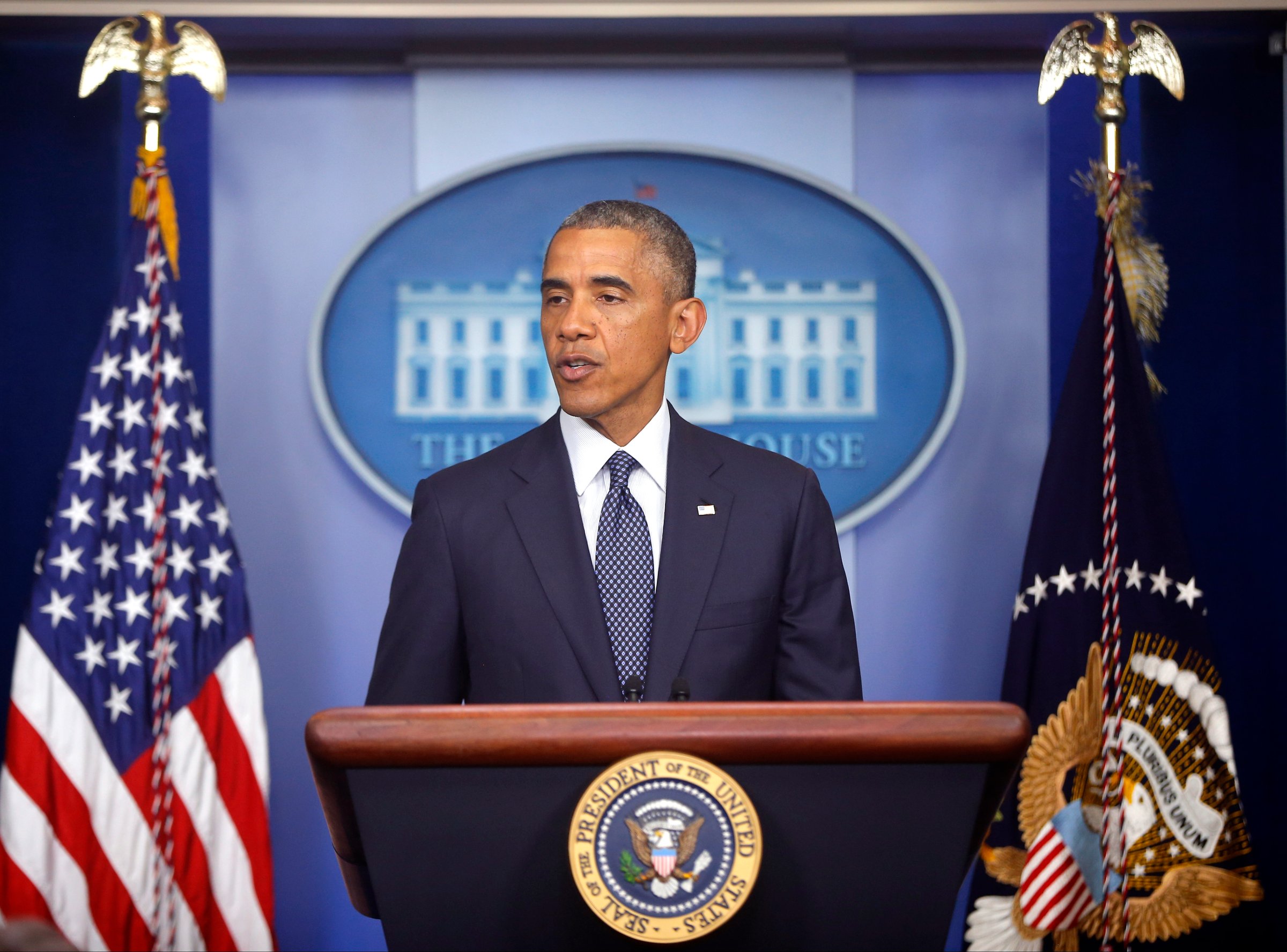
The Obama Administration announced new sanctions against firms in Russia’s energy, financial, and defense sectors Wednesday in response to Russia’s continued support for Ukrainian separatists.
Senior administration officials said Wednesday that Russia has continued to violate Ukraine’s “sovereignty and territorial integrity” after its annexation of the Crimean peninsula earlier this year, precipitating the sanctions after months of warnings. The new sanctions, the first so-called “sectoral sanctions” used by the U.S. against Russia hit two banks, Gazprombank OAO and VEB, and two Russian energy firms, OAO Novatek and Rosneft, limiting their access to the United States’ capital markets.
Also sanctioned by the U.S. Wednesday are the self-proclaimed Donetsk People’s Republic and the Luhansk People’s Republic, as well as the top general in Russia’s FSB security service, reportedly a leading separatist supporter within the FSB. Eight state-owned defense and technology firms dealing in arms or related material sector in Russia are also included.
“These sanctions are significant, but they are also targeted,” President Barack Obama said Wednesday, adding that they are designed to limit spillover effects on U.S. and European interests. “We live in a complex world and at a challenging time.”
Administration officials said the sanctions would “only further exacerbate Russia’s economic problems,” adding that sanctions already in place are responsible for slowing the growth of that country’s economy. They also warned that the U.S. has the ability to expand sanctions if Russia continues its “inappropriate behavior.” The officials added that “there is an off-ramp here for Russia” if they move swiftly to close the border between Russia and Eastern Ukraine as well as back off supporting the separatists fighting the Ukrainian government.
However, Edward Chow, a senior fellow and energy expert at the Center for Strategic and International Studies, says these new sanctions weren’t designed to dramatically reduce Russia’s rate of growth. “Russia was already forecast to have near-zero economic growth this year, before the Ukraine crisis which it created,” said Chow. “Most economists were forecasting negative growth this year before these latest sanctions were announced.”
Even if the overall Russian economy isn’t slowed by these sanctions, though, the firms targeted will certainly feel the hurt.
“I think the actions taken by Treasury today will limit the sources from which Rosneft can get financing and thus raise the cost of capital for the firm, making it more difficult and more costly to do business,” said Jason Bordoff, Professor of Professional Practice in International and Public Affairs at Columbia University. “It does not prohibit U.S. firms from doing business with Rosneft or bar Russian energy supplies from flowing into the global market, but it is the next step in a gradually escalating series of measures the Administration can take to ratchet up the economic pressure on Moscow, while seeking to minimize the collateral damage to the US and its allies who have close economic ties to Russia.”
European Union officials imposed their own increased sanctions against Russia separately on Wednesday.
With reporting by Alex Rogers/Washington
More Must-Reads from TIME
- Donald Trump Is TIME's 2024 Person of the Year
- Why We Chose Trump as Person of the Year
- Is Intermittent Fasting Good or Bad for You?
- The 100 Must-Read Books of 2024
- The 20 Best Christmas TV Episodes
- Column: If Optimism Feels Ridiculous Now, Try Hope
- The Future of Climate Action Is Trade Policy
- Merle Bombardieri Is Helping People Make the Baby Decision
Contact us at letters@time.com